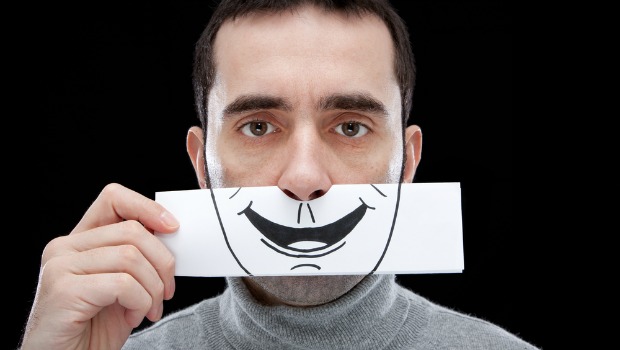Are you trying too hard to be happy? It’s possible, says Todd Kashdan, Ph.D., professor of psychology and senior scientist at the Center for the Advancement of Well-Being at George Mason University in Fairfax, Virginia. And when it becomes our sole objective, he cautions, we can lose sight of the bigger picture.
Are you trying too hard?
Shannon Bradley-Colleary, a Los Angeles-based writer and mother of two, says the constant messaging to be happy sometimes makes her feel like she can’t measure up. And even  though she experiences moments of gratitude daily, she says there is still an underlying pressure to be happier.
though she experiences moments of gratitude daily, she says there is still an underlying pressure to be happier.
“It seems like some of us are just born happy, and others of us struggle to achieve it, perhaps being happy and not even knowing it,” she says. “I think I live between happy and striving.”
The evidence is out there
Research has shown us that happy people sleep better, live longer, have larger (and more active) social networks, make better bosses, make better decisions and even make more money. Yet experts say trying to master happiness is stressing us out.
“About 90 percent of the people I talk to say their objective is to live a happier life,” Todd says. “People want a life of vitality with meaning, where the essence of who they are can come out through the work they do.”
But there is a limit
In his new book, The Upside of Your Dark Side, co-authored with Robert Biswas-Diener, Ph.D., Todd looks at how emotions like anger, guilt, anxiety and sadness can be beneficial—and ultimately even boost our long-term happiness. Instead of trying to be happy every waking moment, we should aim for balance—finding pleasure in the things we enjoy and learning from the obstacles we overcome.
“Happiness is not about people wrapping themselves in bubble wrap and avoiding anything that doesn’t fit with that [outlook],” Todd says. “It’s about working on what you can control. It is scientifically honest and freeing to let go of the burden and pressure to be happy all the time.”
Working hard to be happy
Focusing on just one thing—whether it’s money, fitness or happiness—often makes us feel like we don’t measure up, says Jamie Gruman, Ph.D., founding member and current chair of the Canadian Positive Psychology Association and associate professor in the department of business at the University of Guelph.
“People today compare themselves to others more than ever before,” he says, pointing to social media and pop culture as constant reminders. Although the current emphasis on happiness has given us a larger toolkit for cultivating joy, it may also cause us to focus on an end goal of happiness instead of enjoying life as it happens, however it happens.
“All of our emotions serve a purpose, and that means we’re going to have days where we’re sad,” Jamie says. “It’s that fluctuation in our emotions that helps us evolve and lets us enjoy our happiness more.”
When happiness backfires
At the Canadian Conference on Positive Psychology last July, Jamie presented results of his study on the correlation between depression and the need for happiness. He found that subjects who spent a great deal of time thinking about happiness experienced less overall satisfaction with their lives and more depression, but those who participated in activities that made them happy had the opposite response.
How much is enough?
 One of the challenges many people have with happiness is that there’s no set way to measure it.
One of the challenges many people have with happiness is that there’s no set way to measure it.
“It’s not as though we can tell people ‘When you’re this happy, that’s good,’ ” says Christine Frank, a Carleton University Ph.D. student whose current research focuses on the benefit of anticipating both positive and negative outcomes to situations. She says that, like so many things, when people hear they can be happier, it can lead them to question if they are doing as much as they should.
“I think the idea of being happier is always desirable—similar to being science richer or healthier—even if you consider yourself a happy person,” Christine says. However, our happiness levels fluctuate from one day (or hour) to the next and are influenced by things we can’t control, like traffic, weather or how much sleep we got the night before. When we set our happiness standards high, and then fall short of them, negativity sets in.
Allow yourself the full range of emotions
“One study found that the more people strived to obtain optimal levels of happiness, the more disappointed they felt about their achievements,” Christine says. “In another study, when people were instructed to feel as happy as possible while listening to a piece of music, they reported feeling less happy.”
“It’s kind of like being in love—you have to let it happen,” Jamie says. “You can’t make yourself feel something, and those feelings aren’t going to be the same every day. The objective should be to have a good life.”
Doing things you enjoy will do the most good, he advises. Whether that means climbing mountains or sewing quilts or spending time with family or pets, people who actively pursue things they enjoy will fare better than those whose main focus is on learning how to be happier.
“When people allow themselves to experience their full range of emotions, in the long run, they end up being much happier.”











